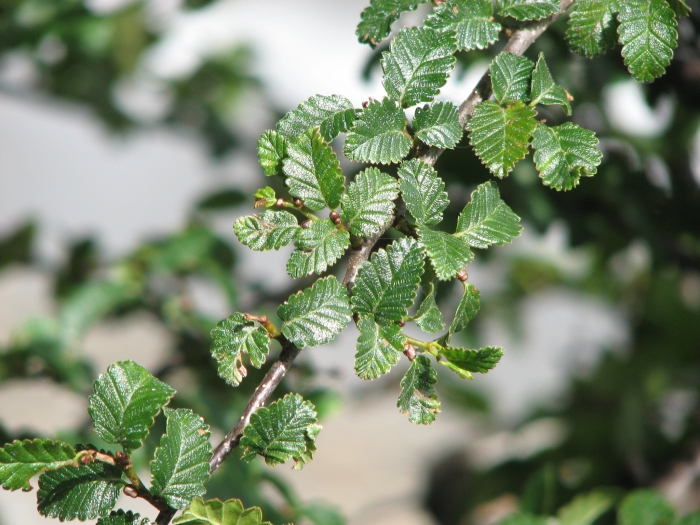Lenga Beech
(Nothofagus pumilio)
Lenga Beech (Nothofagus pumilio)
/
/

Raul Antonio Alvarez
CC BY 2.0
Image By:
Raul Antonio Alvarez
Recorded By:
Copyright:
CC BY 2.0
Copyright Notice:
Photo by: Raul Antonio Alvarez | License Type: CC BY 2.0 | License URL: https://creativecommons.org/licenses/by-sa/2.0/ | Uploader: Raul Antonio 1942 | Publisher: Flickr |























































Estimated Native Range
Summary
Nothofagus pumilio, commonly known as Lenga Beech, is a deciduous tree native to the temperate forests of the southern Andes in Argentina and Chile. It thrives in subalpine environments and is often found at altitudes ranging from 700 to 2,000 meters, where it forms pure stands or mixes with other Nothofagus species. Lenga Beech can reach up to 30 meters (100 feet) in height with a trunk diameter of 1.5 meters (5 feet) in its optimal range. At the northern edge of its range or at higher elevations, it adopts a shrubby form. The leaves of Lenga Beech are dark green, elliptic, and toothed, measuring 2–4 cm in length with irregularly lobed margins. In autumn, the foliage turns to striking yellow and reddish tones, adding seasonal interest to the landscape.
The Lenga Beech is valued for its adaptability to a range of soil types, although it prefers well-drained, acidic soils. It is a species with notable cold hardiness, making it suitable for high-altitude or high-latitude gardens. The tree’s ability to produce vibrant fall colors and its relatively low maintenance requirements make it a desirable choice for ornamental planting. It is also used for reforestation projects in its native range due to its ecological importance. The small nuts produced by the tree are not commonly harvested but do provide food for wildlife. Gardeners should be aware that while Lenga Beech is generally disease-resistant, it can be susceptible to fungal infections in conditions of high humidity or poor air circulation. It is not known to be invasive when grown outside its native range.CC BY-SA 4.0
The Lenga Beech is valued for its adaptability to a range of soil types, although it prefers well-drained, acidic soils. It is a species with notable cold hardiness, making it suitable for high-altitude or high-latitude gardens. The tree’s ability to produce vibrant fall colors and its relatively low maintenance requirements make it a desirable choice for ornamental planting. It is also used for reforestation projects in its native range due to its ecological importance. The small nuts produced by the tree are not commonly harvested but do provide food for wildlife. Gardeners should be aware that while Lenga Beech is generally disease-resistant, it can be susceptible to fungal infections in conditions of high humidity or poor air circulation. It is not known to be invasive when grown outside its native range.CC BY-SA 4.0
Plant Description
- Plant Type: Tree
- Height: 60-120 feet
- Width: 30-45 feet
- Growth Rate: Moderate
- Flower Color: N/A
- Flowering Season: Non-Flowering
- Leaf Retention: Deciduous
Growth Requirements
- Sun: Full Sun
- Water: Medium
- Drainage: Medium
Common Uses
Edible*Disclaimer: Easyscape's listed plant edibility is for informational use. Always verify the safety and proper identification of any plant before consumption., Low Maintenance
Natural Habitat
Temperate forests of the southern Andes in Argentina and Chile, particularly in subalpine environments
Other Names
Common Names: Lenga
Scientific Names: , Nothofagus pumilio, Fagus pumilio, Calusparassus pumilio, Fagus antarctica var. bicrenata, Fagus antarctica var. pumilio, Fagus pumilo,
GBIF Accepted Name: Nothofagus pumilio (Poepp. & Endl.) Krasser